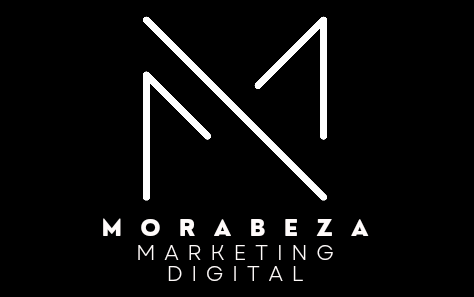


Ao criar uma estratégia de marketing de conteúdo de alto nível para 2024, o foco principal deve ser cativar o seu público-alvo, gerar leads e estabelecer confiança inabalável.
Start by defining objectives SMART, criar um content calendar and thoroughly study your competitors.
Identifique o seu público-alvo ideal, explorando as suas características demográficas, psicográficas e recorrendo a AI-powered tools for a personalised touch.
Harness the power of analysing data para aperfeiçoar a sua abordagem, aumentar o impacto do conteúdo e oferecer experiências personalizadas.
Integre na sua estratégia conteúdo em vídeo de alta qualidade e elementos interativos como quizzes cativantes e enquetes envolventes para aumentar a participação e impulsionar conversões.
Adote as últimas tendências e tecnologia de ponta para cultivar relacionamentos duradouros com a sua marca.
Aprofunde-se nessas táticas para pavimentar o caminho para o sucesso em 2024.
Contents
O marketing de conteúdo desempenha um papel crucial nas estratégias de negócios de hoje, comprovando seu impacto imenso no consumer involvement, na lead generation and us esforços de construção de confiança.
As estatísticas mostram que 70% dos consumidores preferem informative articles em vez de anúncios tradicionais ao aprender sobre empresas, destacando o papel essencial do marketing de conteúdo na geração de leads.
Não só gera três vezes mais leads do que o marketing de saída a um custo reduzido, mas também aumenta os níveis de envolvimento, como confirmado por 72% dos profissionais de marketing.
A construção de confiança é igualmente significativa, com 78% dos consumidores percebendo as empresas que oferecem conteúdo personalizado como genuinamente interessadas em promover relacionamentos positivos.
Além disso, o marketing de conteúdo impulsiona as conversion rates seis vezes mais altas do que outras estratégias, estabelecendo sua posição como um pilar nas abordagens de marketing modernas.
Ao dar início à sua estratégia de marketing de conteúdo, é essencial estabelecer uma base sólida com passos de planeamento estratégico. Comece por definir SMART objectives – Específicos, Mensuráveis, Atingíveis, Relevantes e Temporais.
Create a content calendar que mapeie tópicos, formatos e canais de distribuição para uma abordagem bem organizada. Aprofunde-se numa análise competitiva para se manter à frente das tendências do setor e delinear uma estratégia de conteúdo única.
Estabeleça indicadores-chave de desempenho (KPIs) como taxas de envolvimento e conversões para acompanhar o seu progresso. Adapte o seu conteúdo para ressoar com personas de público-alvo específicas, considerando dados demográficos, comportamentos e preferências.
Seguir estes passos de planeamento estratégico do Content Marketing Institute é fundamental para construir uma estratégia de conteúdo robusta e bem-sucedida.
Para iniciar uma estratégia de marketing de conteúdo impactante que realmente ressoe com o seu público-alvo, é essencial mergulhar fundo na identificação e compreensão do seu público-alvo.
No mundo digital de hoje, mergulhar na análise de dados é crucial para otimizar estratégias de marketing de conteúdo e alcançar resultados reais.
Ao aproveitar a análise de dados, as empresas podem descobrir insights valiosos sobre os comportamentos, preferências e níveis de envolvimento do público. Essas informações valiosas capacitam as empresas a avaliar a eficácia de suas estratégias de conteúdo, monitorar os indicadores-chave de desempenho e ajustar campanhas para obter melhores resultados.
A análise de dados permite que as organizações identifiquem tendências, padrões e áreas para aprimoramento em seus esforços de marketing de conteúdo, levando a experiências personalizadas e mensagens direcionadas para seu público.
Em última análise, aproveitar a análise de dados no marketing de conteúdo pode resultar em um ROI mais alto, maior envolvimento do público e uma vantagem competitiva no sempre evoluindo mundo digital.
No mundo digital de hoje, as empresas devem aproveitar o poder do conteúdo em vídeo para cativar audiências e destacar-se num espaço online concorrido. Até 2024, o tráfego na internet será dominado por vídeos, sublinhando a necessidade de as empresas integrarem elementos de vídeo cativantes nas suas estratégias de marketing.
Aqui estão algumas dicas essenciais para tirar o máximo partido do conteúdo em vídeo:
Ao abraçar a interatividade na criação de conteúdo, pode aumentar o envolvimento da audiência e criar uma experiência digital mais immersive for users.
Incorporate interactive elements como quizzes envolventes, sondagens esclarecedoras e inquéritos interativos pode aumentar significativamente os níveis de envolvimento e ajudá-lo a destacar-se no competitivo panorama digital.
O conteúdo interativo não só oferece uma saída refrescante em relação ao consumo passivo tradicional, como também leva a um notável aumento de 33% nas conversões em comparação com os formatos passivos.
Para injetar nova vida na sua estratégia de conteúdo, considere utilizar técnicas interativas que convidem à participação da audiência e ao feedback valioso. Esta abordagem garante que a sua marca permaneça memorável e garante que a sua audiência participe ativamente no conteúdo, resultando numa experiência de marca mais envolvente e memorável.
